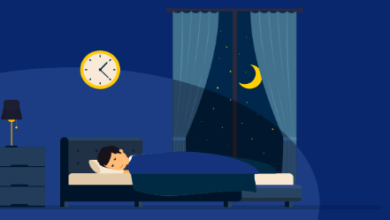Can lower dose isotretinoin 20 mg cure acne?

Buy accutane online, commonly known by its former brand name Accutane, is a powerful medication primarily used to treat severe acne that hasn’t responded well to other treatments. Traditionally, isotretinoin has been prescribed at higher doses, often ranging from 0.5 to 1.0 mg/kg of body weight daily. However, recent research has shed light on the efficacy of lower doses, such as 20mg, in treating acne while potentially reducing the risk of side effects. Let’s delve into the details of lower dose isotretinoin and its role in acne management.
Understanding Isotretinoin and Acne:
Buy isotretinoin online belongs to a class of medications called retinoids, derived from vitamin A. It works by targeting multiple factors involved in acne development. Firstly, it reduces the production of sebum, the oily substance that can clog pores and contribute to acne. Secondly, it normalizes the shedding of skin cells within the hair follicles, preventing them from becoming clogged. Additionally, isotretinoin has anti-inflammatory properties, which help reduce redness and swelling associated with acne lesions.
Acne, a common skin condition, occurs when hair follicles become clogged with oil and dead skin cells. This can lead to the formation of whiteheads, blackheads, pimples, or cysts. While acne is often associated with adolescence, it can persist into adulthood and have a significant impact on self-esteem and quality of life.
The Role of Lower Dose Isotretinoin:
Historically, Isotretinoin 40 mg has been prescribed at higher doses to achieve maximum efficacy. However, higher doses are also associated with an increased risk of side effects, including dry skin, lips, and eyes, as well as potential liver and lipid abnormalities. In recent years, researchers have explored the possibility of using lower doses of isotretinoin to achieve similar therapeutic benefits while minimizing adverse effects.
Efficacy of Lower Dose Isotretinoin:
Several studies have investigated the efficacy of lower dose isotretinoin, typically ranging from 0.25 to 0.5 mg/kg/day or fixed doses such as 20mg daily. These studies have shown promising results, with lower dose isotretinoin demonstrating comparable effectiveness to higher doses in reducing acne lesions and improving overall skin appearance.
A study published in the Journal of the American Academy of Dermatology compared the efficacy and safety of low-dose isotretinoin (20mg daily) to conventional-dose isotretinoin (0.5mg/kg/day) in patients with moderate to severe acne. The study found that both treatment regimens were similarly effective in reducing acne lesions, with the low-dose group experiencing fewer side effects such as dryness and cheilitis (inflammation of the lips).
Benefits of Lower Dose Isotretinoin:
Using lower doses of isotretinoin offers several potential benefits for patients with acne:
- Reduced Side Effects: Lower doses are associated with a lower incidence and severity of side effects compared to higher doses. This can improve tolerability and adherence to treatment, leading to better long-term outcomes.
- Gradual Improvement: While lower doses may take longer to achieve optimal results compared to higher doses, they can still lead to significant improvements in acne over time. This gradual approach may be preferable for some patients, particularly those who are concerned about potential side effects.
- Lower Cumulative Dose: Lower doses result in a lower cumulative dose of isotretinoin over the course of treatment. This may be advantageous for patients who are at higher risk of experiencing side effects associated with higher cumulative doses, such as dryness or musculoskeletal symptoms.
Considerations and Precautions:
Despite the potential benefits, it’s essential to consider certain factors when using lower dose isotretinoin:
- Patient Selection: Not all patients may be suitable candidates for lower dose isotretinoin. Factors such as the severity of acne, previous treatment history, and individual risk factors should be taken into account when determining the appropriate dose.
- Monitoring: Regular monitoring by a healthcare professional is crucial during isotretinoin treatment, regardless of the dose used. This includes monitoring for potential side effects, as well as assessing treatment response and adjusting the dose as needed.
- Patient Education: Patients should be educated about the potential side effects of isotretinoin and instructed on how to manage them effectively. Additionally, patients should understand the importance of contraception to prevent pregnancy, as isotretinoin can cause severe birth defects if taken during pregnancy.
Conclusion:
Lower dose isotretinoin, such as 20mg daily, has emerged as a viable option for the treatment of acne, offering comparable efficacy to higher doses with potentially fewer side effects. While further research is needed to fully establish its place in acne management, lower dose isotretinoin represents a promising alternative for patients seeking effective and well-tolerated treatment for acne. As always, it’s essential for patients to consult with a dermatologist or healthcare provider to determine the most appropriate treatment approach based on individual needs and considerations.



